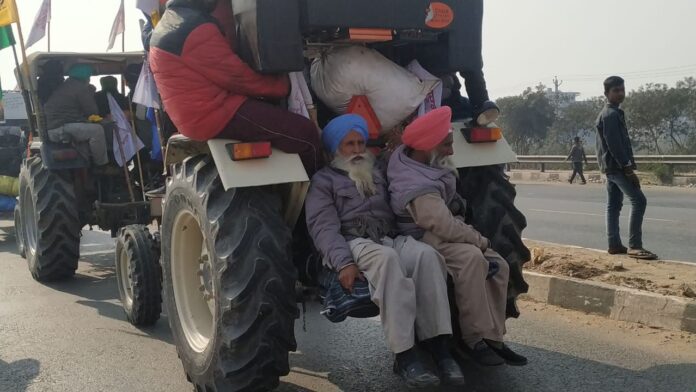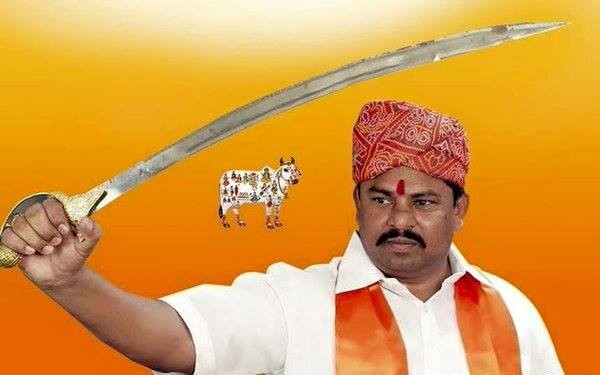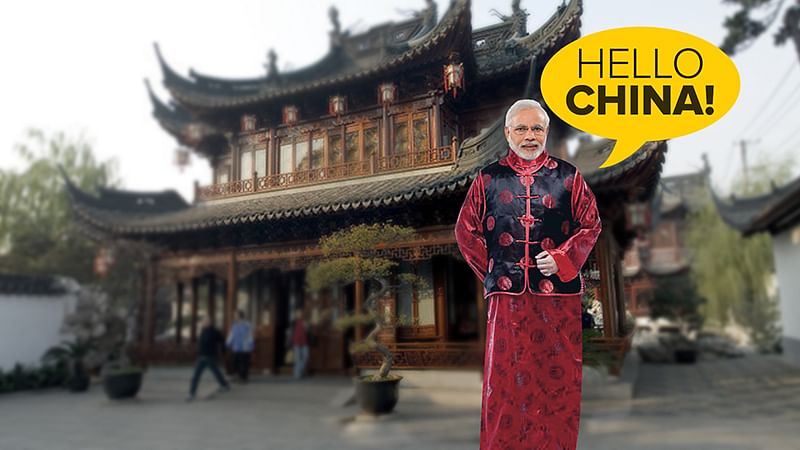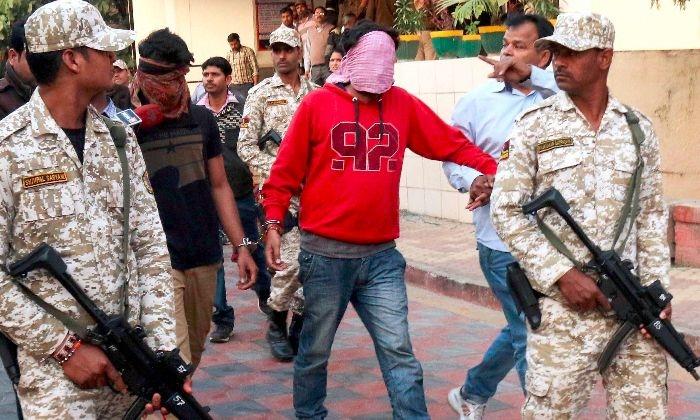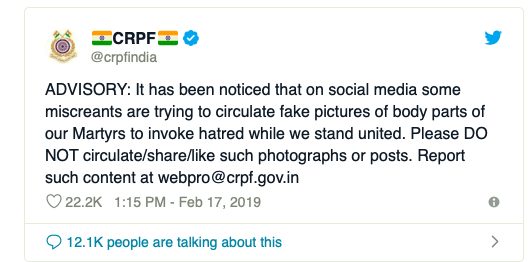BJP led Modi Government in India blocked mobile internet services in several areas around New Delhi on Saturday as protesting farmers began a one-day hunger strike after a week of clashes with authorities that left one dead and hundreds injured.
Angry at new agricultural laws that they say benefit large private food buyers at the expense of producers, tens of thousands of farmers have been camped at protest sites on the outskirts of the capital for more than two months.
At the main protest site near the village of Singhu on the northern outskirts of the city, there was a heightened police presence on Saturday as hundreds of tractors arrived from Haryana, one of two states at the centre of the protests.
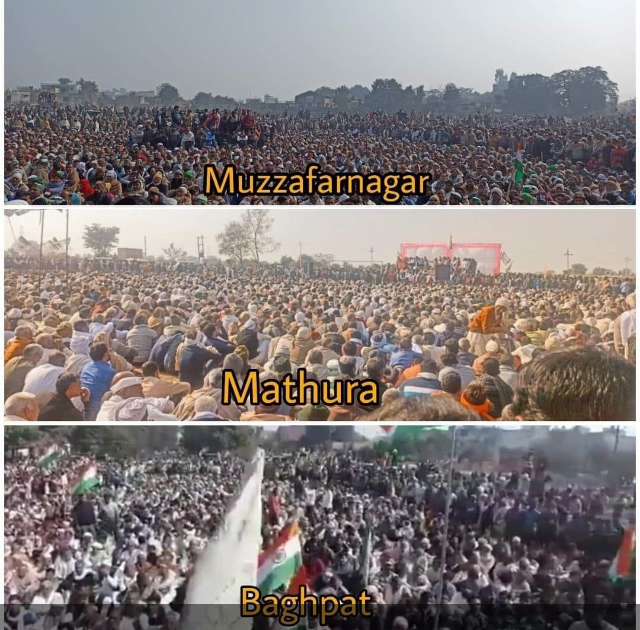
“Many farmers’ groups have joined the protest site since last night,” said Mahesh Singh, a 65-year-old farmer from Haryana.
“They have come to show their support and more farmers are expected to come in the next two days.”
India’s interior ministry said on Saturday internet services at three locations on the outskirts of New Delhi where protests are occurring had been suspended until 11 p.m. (1730 GMT) on Sunday to “maintain public safety”.
However government sources said as the surge of farmers crowd happens in the protesting site ( post attack of farmers by RSS goons and Police ) the suspension may be extended further
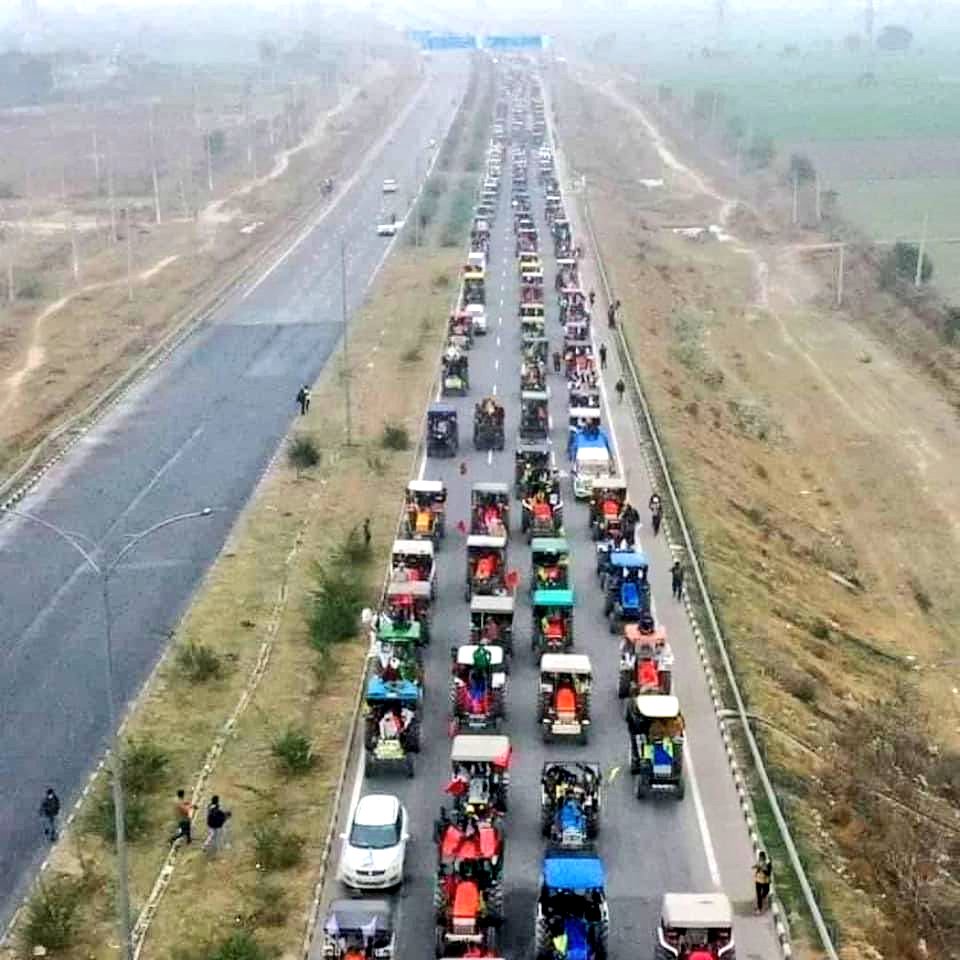
Indian authorities often block local internet services when they believe there will be unrest, although the move is unusual in the capital.
Farm leaders said the hunger strike by hundreds of protesters, primarily at Singhu and two other protest sites and designed to coincide with the anniversary of the death of Indian independence leader Mahatma Gandhi, would show Indians that the demonstrations were non-violent.
“The farmers’ movement was peaceful and will be peaceful,” said Darshan Pal, a leader of the Samyukt Kisan Morcha group of farm unions organising the protests.
Agriculture employs about half of India’s population of 1.3 billion, and unrest among an estimated 150 million landowning farmers is one of the biggest challenges to the government of Prime Minister Narendra Modi since coming to power in 2014.
Eleven rounds of talks between farm unions and the government have failed to break the deadlock.
The government has offered to put the laws on hold for 18 months, but farmers say they will not end their protests for anything less than full repeal.
In the past week, a planned tractor parade on Tuesday’s Republic Day anniversary turned violent when some protesters deviated from pre-agreed routes, tore down barricades and clashed with police, who used tear gas to try and restrain them.
Sporadic clashes between protesters, police and groups shouting anti-farmer slogans have broken out on multiple occasions since then.
Owing to the clashes Delhi police arrested 44 people including the man who attacked SHO Alipur in the violence that broke out on Friday afternoon at Singhu border.
Criminal case under various sections including attempt to murder has been registered in Alipur police station, Delhi and investigation has been initiated.
“Accused Ranjeet Singh, a resident of village Kazampur, Distt Naya Shehar, PS Rahu, Punjab, age 22 years who attacked SHO Alipur with sword has been arrested from the spot,” a senior police officer said.
Situation at Delhi’s Haryana border at Singhu deteriorated on Friday afternoon as villagers clashed with protesting farmers after one thing led to another and the mob was seen armed with stones, lathis, swords.
A police officer among others was injured. Group of RSS men, who claimed to be from nearby villages and wanted to get the over two-month old road blockage cleared came to blows with the farmers after heated arguments and then locals damaged tents, leading to stone pelting from both sides.
However the situation was controlled an hour later.
In response to farmers protest out of 22 in Haryana 17 Districts Internet Cut

